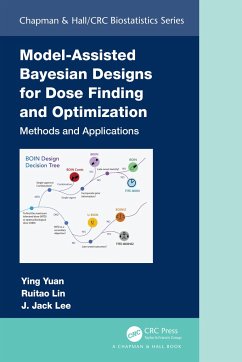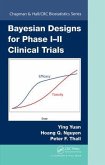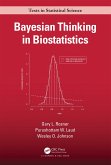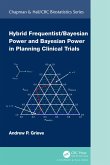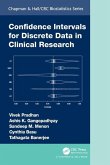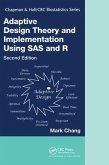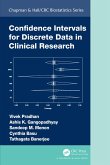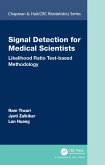Bayesian adaptive designs provide a critical approach to improve the efficiency and success of drug development that has been embraced by the US Food and Drug Administration (FDA). This is particularly important for early phase trials as they form the basis for the development and success of subsequent phase II and III trials.
The objective of this book is to describe the state-of-the-art model-assisted designs to facilitate and accelerate the use of novel adaptive designs for early phase clinical trials. Model-assisted designs possess avant-garde features where superiority meets simplicity. Model-assisted designs enjoy exceptional performance comparable to more complicated model-based adaptive designs, yet their decision rules often can be pre-tabulated and included in the protocol-making implementation as simple as conventional algorithm-based designs. An example is the Bayesian optimal interval (BOIN) design, the first dose-finding design to receive the fit-for-purpose designation from the FDA. This designation underscores the regulatory agency's support of the use of the novel adaptive design to improve drug development.
Features
Represents the first book to provide comprehensive coverage of model-assisted designs for various types of dose-finding and optimization clinical trialsDescribes the up-to-date theory and practice for model-assisted designsPresents many practical challenges, issues, and solutions arising from early-phase clinical trialsIllustrates with many real trial applicationsOffers numerous tips and guidance on designing dose finding and optimization trialsProvides step-by-step illustrations of using software to design trialsDevelops a companion website (www.trialdesign.org) to provide freely available, easy-to-use software to assist learning and implementing model-assisted designs
Written by internationally recognized research leaders who pioneered model-assisted designs from the University of Texas MD Anderson Cancer Center, this book shows how model-assisted designs can greatly improve the efficiency and simplify the design, conduct, and optimization of early-phase dose-finding trials. It should therefore be a very useful practical reference for biostatisticians, clinicians working in clinical trials, and drug regulatory professionals, as well as graduate students of biostatistics. Novel model-assisted designs showcase the new KISS principle: Keep it simple and smart!
The objective of this book is to describe the state-of-the-art model-assisted designs to facilitate and accelerate the use of novel adaptive designs for early phase clinical trials. Model-assisted designs possess avant-garde features where superiority meets simplicity. Model-assisted designs enjoy exceptional performance comparable to more complicated model-based adaptive designs, yet their decision rules often can be pre-tabulated and included in the protocol-making implementation as simple as conventional algorithm-based designs. An example is the Bayesian optimal interval (BOIN) design, the first dose-finding design to receive the fit-for-purpose designation from the FDA. This designation underscores the regulatory agency's support of the use of the novel adaptive design to improve drug development.
Features
Represents the first book to provide comprehensive coverage of model-assisted designs for various types of dose-finding and optimization clinical trialsDescribes the up-to-date theory and practice for model-assisted designsPresents many practical challenges, issues, and solutions arising from early-phase clinical trialsIllustrates with many real trial applicationsOffers numerous tips and guidance on designing dose finding and optimization trialsProvides step-by-step illustrations of using software to design trialsDevelops a companion website (www.trialdesign.org) to provide freely available, easy-to-use software to assist learning and implementing model-assisted designs
Written by internationally recognized research leaders who pioneered model-assisted designs from the University of Texas MD Anderson Cancer Center, this book shows how model-assisted designs can greatly improve the efficiency and simplify the design, conduct, and optimization of early-phase dose-finding trials. It should therefore be a very useful practical reference for biostatisticians, clinicians working in clinical trials, and drug regulatory professionals, as well as graduate students of biostatistics. Novel model-assisted designs showcase the new KISS principle: Keep it simple and smart!
"This book is a must for someone that wants to work with the aforementioned models using SAS and wants a step-by-step guide on how and when to implement those models. Each chapter is organized in a very similar manner... It is one of the best books on applied statistics I have read up to this point. I am sure you will find it great as well if you are part of the intended target audience, as I have described above. Particularly for non-statisticians that have an upcoming analysis where linear regression or ANOVA models are planned, the book is a must in order to make sure the proper method is used, what to check, what alternatives there are and how to properly read and interpret the results when using SAS."
David Manteigas, Portugal, ISCB News, May 2024.
David Manteigas, Portugal, ISCB News, May 2024.

